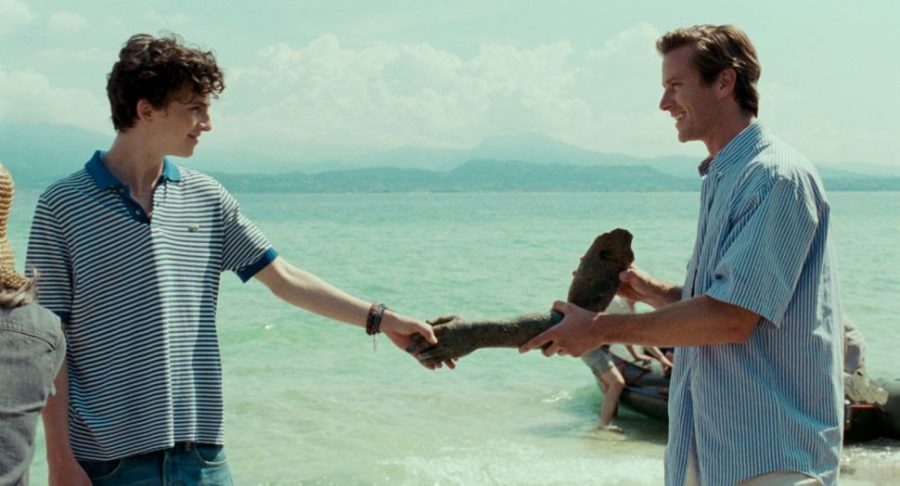Call Me By Your Name allows for self-reflection, acceptance of vulnerability
February 28, 2018
I’ve seen the movie twice. I’ve read the book. To say that the film Call Me By Your Name is good would be quite the understatement. In fact, naming this film as any one thing is difficult for me. There are probably a million different ways to describe it, yet, none of them seem to do it justice. Heartbreaking, uplifting, witty, to name just a few. CMBYN proved pivotal in the development of a new understanding of my life and how to truly live.
In the early 80’s, Elio Perlman and his family take residence in their mid-century villa in the heart of Crema, Italy, inviting a new intern, Oliver, to join them. Oliver’s role for the summer is to assist Mr. Perlman, a professor of Greco-Roman archaeology and culture. Throughout Oliver’s six week stay with the Perlman’s he experiences a romance with Elio that would be forever cut short by the circumstances of their own lives.
The story is one of a sensual and tender first love. And quite frankly, it’s awkward. Elio has yet to define his sexuality, but is never portrayed as confused or mislead; he is a teenage boy who is taking life as it comes. Elio and Oliver eventually discover their emotions of lust which draws each of them further into the other’s identity. Identity reaches far beyond attraction when Oliver says, “call me by your name and I’ll call you by mine.” I took this line to mean that since they want to claim each other as part of themselves, they call each other by their own names.
It’s a love story. I know I said that before but this love is within oneself. Throughout the two hours and twelve minutes that I sat in the theater I could genuinely relate to the riffs Elio encountered as he discovered parts of himself he never thought were even there. It’s surreal to be the spectator in the coming-of-age of a kid who is just as lost in the world as I am. Throughout this summer, Elio learns to appreciate what emotions bring to his life and what happens when he embraces those emotions. It makes me want to live a little bit better and a little bit sooner.
Something I took away from this film is that fears are legitimate. Being comfortable is just as important growing up as being uncomfortable. The fact that Elio and Oliver are afraid to express their feelings to one another in fear of rejection is very real. I live my life with fears just as real as theirs. The question of “is it better to speak or die?” is proposed and Elio decides he must speak. It’s empowering to see Elio come to this conclusion in which he actively plays a role in his own fate, while time and time again, I decide not to do anything about my feelings. I would like to say it’s better to speak, but we all know it’s harder than it seems. Telling someone how I feel obviously is not going to make a huge difference in the outcome of my life, but vulnerability truly threatens the emotions that, in the end, make me human.
Mr. Perlman closes out the movie by saying something that we all need to hear sometimes. This movie doesn’t end happily ever after, but that’s okay. Mr. Perlman advises Elio, “our hearts and our bodies are given to us only once and before you know it, your heart is worn out, and, as for your body, there comes a point when no one looks at it, much less wants to come near it. Right now there’s sorrow. Pain. Don’t kill it and with it the joy you’ve felt.”



